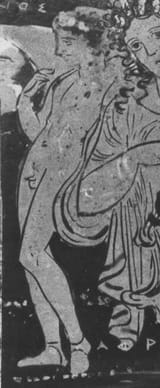>>17919562
>most of the greek city states used “boy-lover” as a perjorative against their rival
Source: 300 directed by Zack Snyder.
Attraction to boys in ancient Greece was viewed as a totally normal component of male sexuality (which it is), and before Christian influence, this normal sexual desire was openly expressed. It was not viewed as perverse, it was normalized. Men who were not attracted to boys were more often viewed as odd. A man being exclusively attracted to women to the exclusion of boys was mentioned as a point of contention in many sources. Historical sources, alongside other forms of evidence lead us to the conclusion that pederasty was prominent or present in the majority of Greek cities. Among the most documented Greek cities (Athens, Sparta, Thebes, etc.) we find an institutionalized form of pederasty where men were paired with boys in a sexual/pedagogical relationship, and we have no reason to believe that the surviving sources are not representative of wider Greek society. Pederastic myths are mentioned in the oldest surviving poetry (Homer, Hesiod), and Greek mythology abounds with love affairs between men and boys. Many of the most famous Greeks, such as Alexander and Socrates, were lovers of boys. The condemnations of pederasty come from a minority of idiosyncratic philosophers, and are often taken out of context, and weren't indicative of broader societal consensus. Illiterate chuds also often make the mistake of conflating condemnation of other sexual improprieties (in connection with boys) with condemnation of pederasty in general in Greek texts; for example, Against Timarchus is often mistakenly used as evidence that pederasty was frowned upon in Athens, when the text is actually supportive of widespread, socially permitted pederasty.
